Cows, sheep, or horses may all come to mind when thinking about animals for your homestead. However, whether you are a seasoned homesteader or just getting started, thinking smaller will pay off big in the long run. Homesteading is not just a way of life, but a means to become more self-sufficient. When thinking of animals for your homestead, you must consider what is going to give you the biggest bang for your buck…i.e., give you the most benefit with the least amount of work. Homesteading can be one of the most rewarding experiences; however, it is also a lot of hard work. Efficiency is going to be the name of the game and there is one animal that offers numerous benefits in one small package.
Chickens! Yes, I know when most people think of chickens, they think of messy animals that poo everywhere…which is true; however, when you provide them the right environment to thrive (we’ll discuss that further down), the mess becomes less of an issue, and much more manageable. Chickens are, in fact, foundational to the homestead, often called the “gateway animal” to farming. They offer so much more than just meat and eggs, and if you do it right, they can become a highly beneficial addition to your homestead, without adding too much hassle.
Purchase one of our grow towers and put a produce section in your home today.
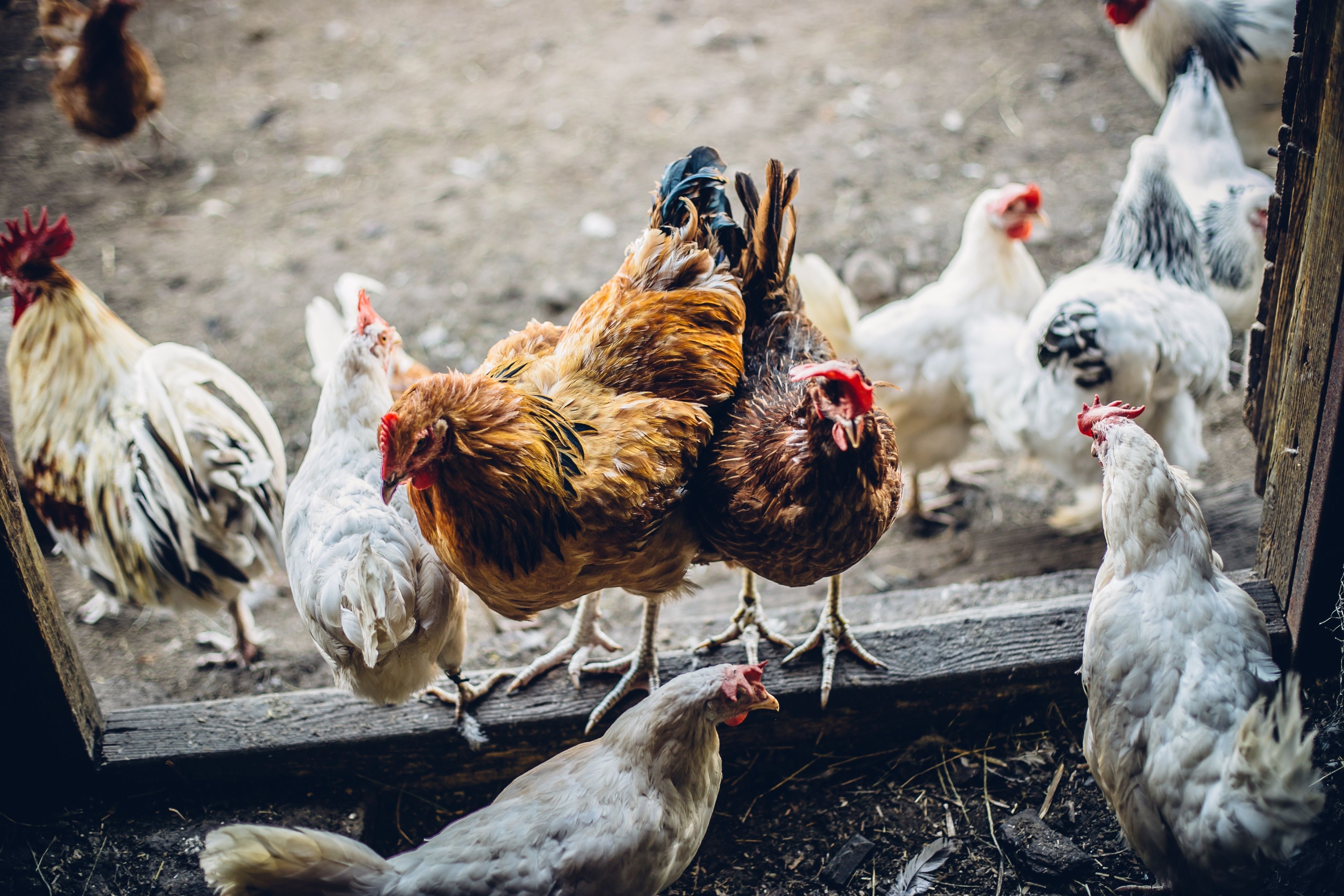
PEST CONTROL
This is an often overlooked, but hugely beneficial aspect of having chickens on your homestead. Pests can be a major problem, especially when you have other animals on your homestead. Mosquitos, ticks, flies and their larvae, and other disease-spreading insects are a chicken’s banquet. On our homestead in the Pacific NW, we have cows, horses, dogs, and cats…the chickens love going through the manure pile (yes…I know, a bit gross…but the benefits are worth it), which helps keep down the fly population that can be detrimental to the cows and horses. By eating all those pesky mosquitoes that can carry West Nile virus and heartworm that can transfer to dogs, the chickens are doing their part to make our homestead safer and healthier for everyone.
“Betsey Miller and her colleagues at Oregon State University recently conducted a study with red ranger chickens to test the insect-finding power of poultry. They placed hundreds of insect pest decoys in leaf litter, placing some litter in the chicken pen and some outside. A day later, they examined both piles and recovered any remaining decoys. The results: all the decoys remained in the control pile, but there were no decoys to be found in the chickens’ pile. The birds had gobbled them up! This study illustrates the chickens’ persistence in ridding an area of potential pests in a very short time”. Why Chickens are Foundational to Homesteading - The Happy Chicken Coop
FERTILIZER
Want beautiful, healthy gardens? By letting chickens dig through the manure pile, as discussed above, the chickens are helping to break it down and “turn” it, helping make beautiful organic compost for our garden. Not only that, but chicken manure is also a fantastic fertilizer for the garden. It’s great in vegetable gardens due to the fact it is high in nitrogen, potassium, and phosphorus. Just be careful not to add it to your garden when it’s fresh. It’s so powerful that the high nitrogen content can burn your plants. You’ll want to let it sit for about 4 to 12 months. The chicken manure can be “turned” or rotated to increase airflow, speeding up the process (chickens can help with this). Their manure is also a great addition to your compost pile!
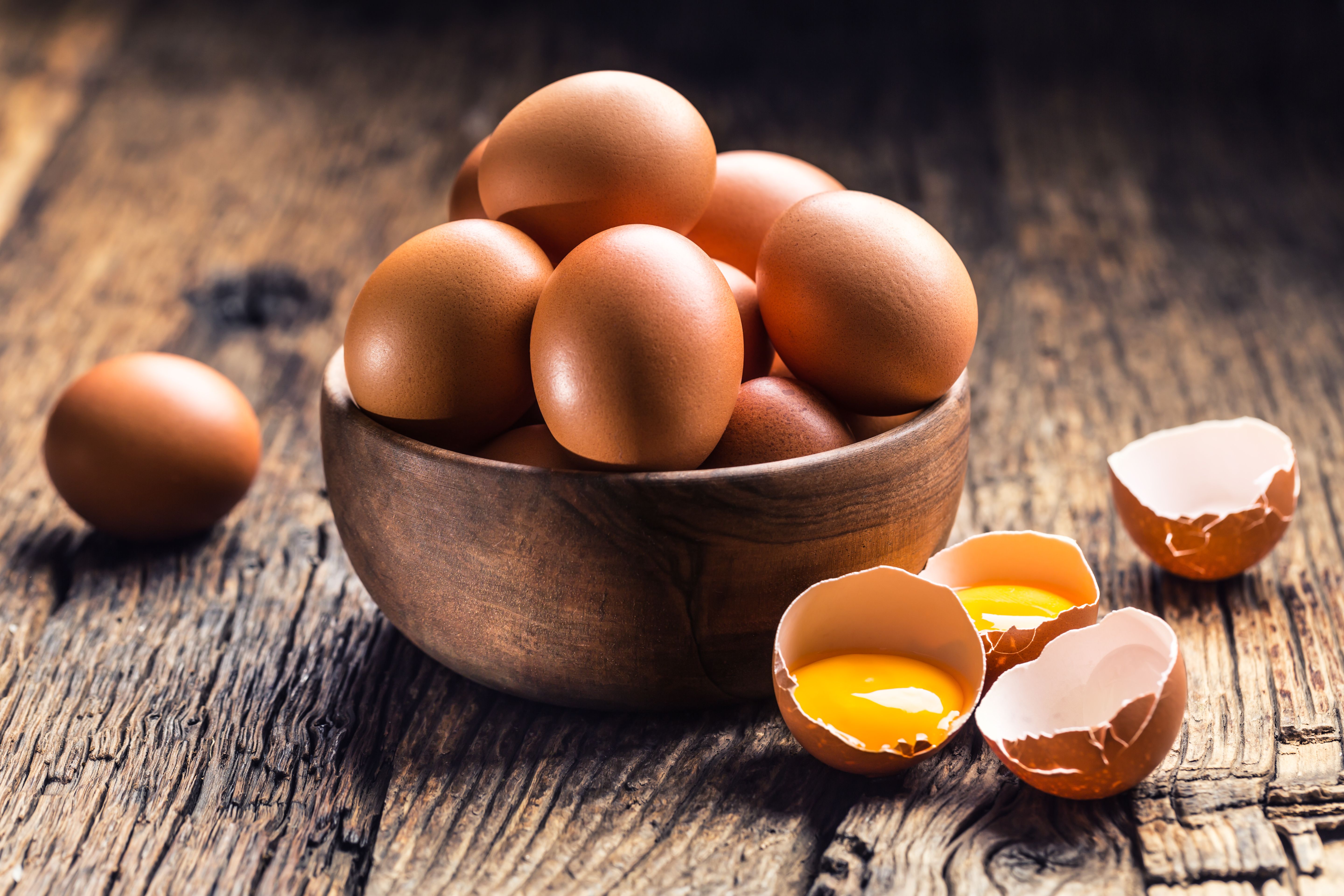
NUTRITION
Chickens provide a great source for protein in their meat and their eggs, but by raising your own free-range chickens, they become a super-food! Have you ever seen a free-range egg where the bird has gotten to bask in the beautiful sun, eating all the fresh grass it desires, versus a store-bought egg? The yolk of a free-range egg is a beautiful golden orange color, while a store-bought conventional egg yolk, from birds that have been “cooped”-up, is usually pale yellow in color. The color of the egg yolk actually comes from a compound called xanthophyll, that is found in grasses and plants. The more grasses and plants the chicken eats, the more nutritious their eggs will be. Free-range eggs can have more antioxidants like vitamins A & E, even containing twice as much vitamin E and omega-3 fatty acids.
Not to mention all the health benefits of the meat itself. Free-range and organic chicken meat also has much less fat, in some cases as much as 50% less, plus a higher amount of omega-3’s. Chicken also contains tryptophan, which has been linked to higher levels of serotonin, the “feel good” hormone in the brain. Vitamin B12, Choline, Zinc, Iron, and Copper are also on the list. And of course, protein in both the yolk and meat, a vital nutrient. Chicken bones/carcasses can also be used to make bone broth, which is a fabulous source of collagen and minerals. All of this makes chicken the ultimate survival and self-sustaining animal!
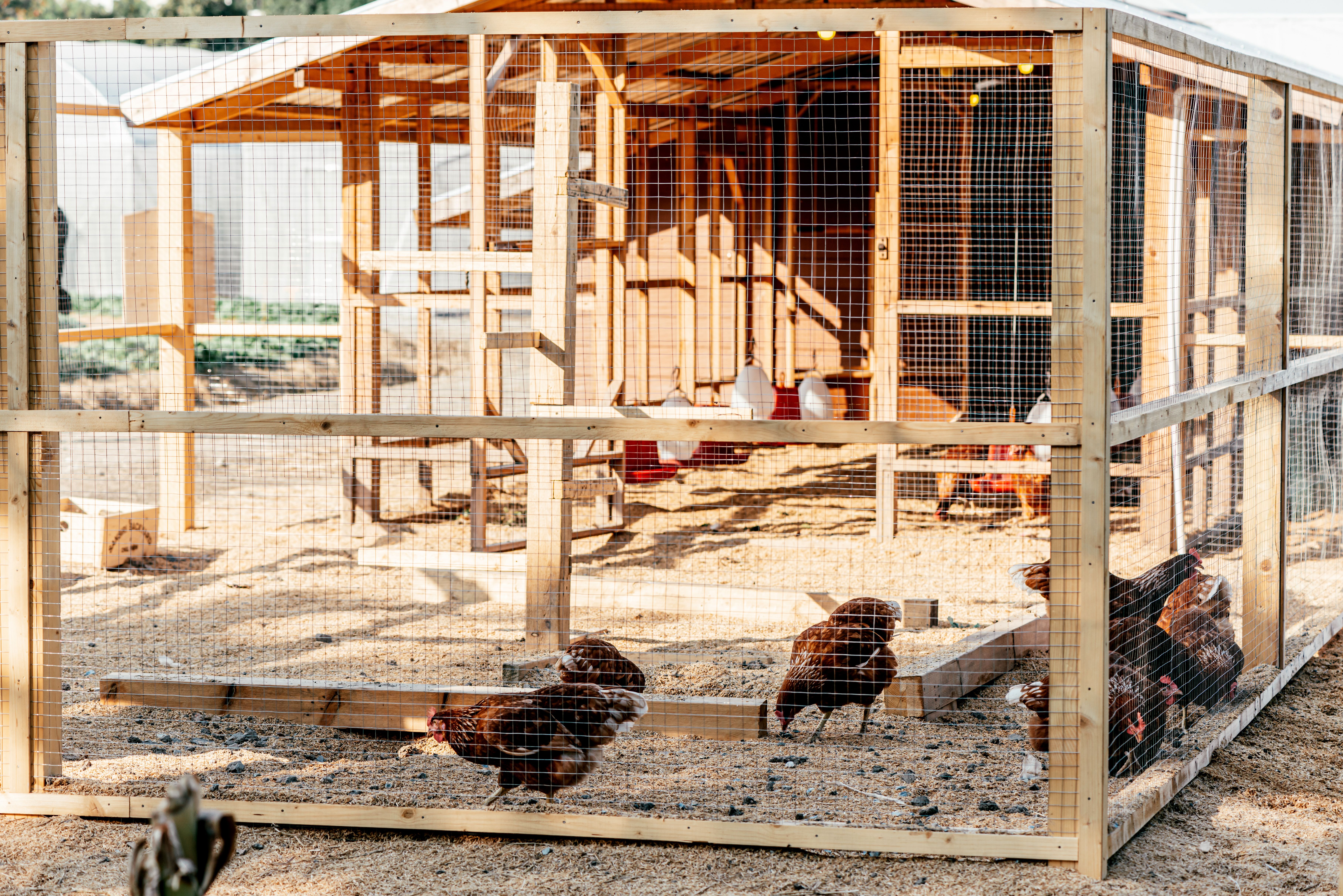
EASY TO CARE FOR
You’re probably thinking, “yeah right”; however, if you give chickens the proper set-up, they are a very easy animal to care for. Making sure they have a safe place to land at night to keep predators away and stay warm is #1 on the list for caring for your chickens. An automatic chicken door on your coop is a very handy tool. It’s amazing how they just know how to go in at night! Chickens are messy and are going to need some sort of bedding, such as straw or cedar shavings. My husband prefers the cedar shavings because they smell good and are easy to spread.
Proper watering and feeding are also a must. Chickens like to get messy with their water so having it hung, or placed off the ground, is going to keep their water clean. Feeding is also super easy – it’s just a matter of making sure they have enough feed in the trough, and keeping this off the ground is also a good idea. And chickens love leftovers! They are fantastic at turning your leftover scraps into glorious food for your plants. Just be careful, there are some foods that aren’t great for your chickens (see this list for more info). Eggshells can also be crushed and fed to your chickens to give them some much-needed calcium for strong eggshells! We keep a bowl in our kitchen and all the leftover organic veggie scraps and peelings, meat (they are meat-lovers like my husband), and eggshells go into the bowl and at the end of the day the chickens get their treats! It’s a win-win!
Let them run! The more access they have to grasses and plants, that haven’t been sprayed, the happier and healthier they will be. You may want to fence them in or use a chicken tractor if you have predators and don’t want chicken poo on your front porch. At our house we have a big dilemma because watching the chickens is quite entertaining and they can be so cute, but their poo on the front porch isn’t so cute! Giving love and care to your chickens by providing them access to good organic grasses and plants is going to pay off for you in the long run. Organic food for them, means healthy organic chicken and eggs for you and your family! Just make sure you keep them out of your freshly planted garden – they love tender vegetation and will wipe out your newly sprouting plants in a heartbeat.
“Chicken have a cool personality – you wouldn’t think it, but they do”
As far as cleaning the coop goes, I must admit that my husband does the dirty work. Once a week he goes out to the coop and gives it a good clean. This only takes about 30 minutes and then it’s good-to-go for the rest of the week. In the spring and summer when the chickens are out and about, it takes much less time. Also, by keeping their coop clean, you reduce the risks for pests and diseases for your chickens. Just like with anything, if you stay on top of it, it makes the job a lot easier.
Tip: Adding a little raw apple cider vinegar (with the mother) to their water helps give them essential probiotics and nutrients to keep them healthy and ward off pests like mites. You just want to make sure their feeder isn’t metal, as the vinegar will cause corrosion.
SUSTAINABLE
Chickens have a lifespan of about 5 – 10 years, but this also depends on the breed. Most may not think of chickens as sustainable, as the hens are the egg layers, and a lot of people choose not to raise roosters. When you add a rooster to your homestead, you can have a never-ending supply of chicks, chickens, and eggs! There are different methods of breeding your own chicks on the homestead. You can let your hen “brood” on the egg, where she sits on the fertilized egg until it hatches, or you can use an incubator. We decided to opt for the incubator, and it was so fun watching those little baby chicks hatch…they are very cute. In case you’re not familiar, as we weren’t at first, you can pretty much count on all your eggs being fertilized when you have a rooster; however, if you gather your eggs every day, especially when it’s warm outside, you don’t have to worry about your fertilized egg turning into a baby chick. You get the best of both worlds! If you are going to opt to let your hens “brood” on the eggs, be sure to choose very clean eggs, and mark them, so you don't accidentally gather them on your daily “shopping” trip.
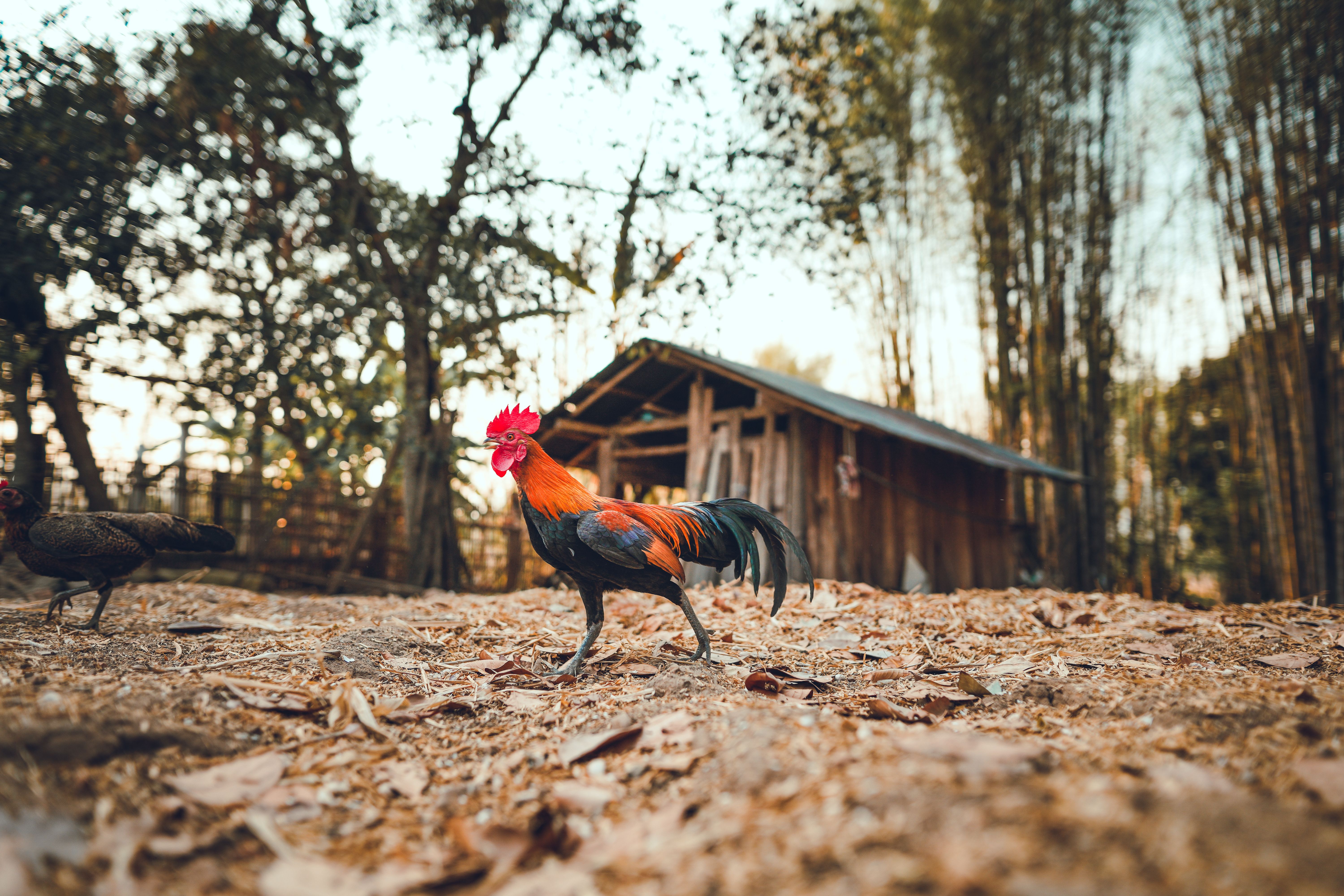
I will admit that a rooster can be a challenge. It’s helpful for the whole family to get involved in the chicken chores while the rooster is young, to give him a chance to get familiar with everyone who will be tending to his “ladies”. Roosters are very protective of their hens, as they should be. This is their job, and they do not look kindly on strangers. Roosters can also have different personalities, and some just may not work for your homestead, especially if they are threatening towards young children. My husband is the one who takes care of the chickens on our homestead, and Mr. Rooster and I do not see eye to eye...but he’s very good at checking me out with that one large eye of his (if you have a rooster, you know what I mean!). I now take the garden cart around with me to protect me from Mr. Rooster when he’s out and about. I think it’s too little, too late for him and me, but my husband loves him! If I could go back, I would have spent more time with him when he was young. Live and learn!
DUAL-PURPOSE
When raising chickens, you’ll want to think about whether you want to raise them for meat, eggs, or both. Meat chickens can have different feeding requirements than egg-laying hens. There are also breeds that are better for meat vs. egg laying.
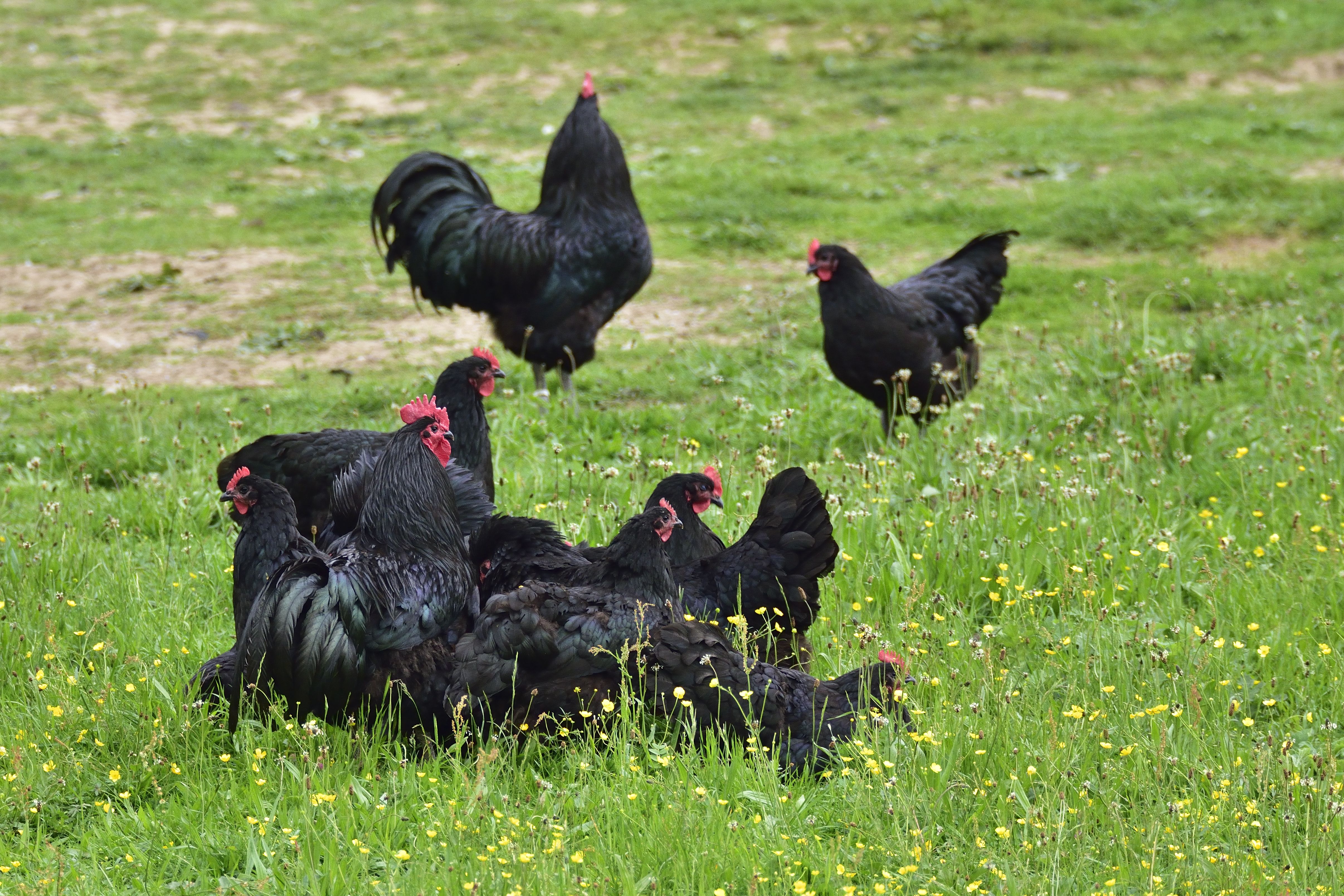
When we first started our chicken adventure, we really had no idea what we were doing. Our neighbor raised chickens to sell at the market for both meat and eggs. She offered to sell us a couple of her egg-laying hens. I went over to her ranch and came home with two very different chickens. One was black and the other red. Of course, I had to name them. The red chicken unfortunately didn’t make it, but Betsy, the black chicken, was doing great! Her breed is called “Black Australorp”. Betsy is seriously the best chicken. We have had different breeds, challenges with different predators, and “homestead accidents”, and Betsy has outlasted them all! We realized we wanted more of her breed! We believe it’s her black color that makes it difficult for the predators to see her at night. Now Betsy has many companions of her same breed, and they all are doing great! Our neighbor told us when selling Betsy to us, that the Black Australorps are people-friendly, and that turns out to be very true! She even squats down for me to pet her. We love that chicken!
To make things even better, when we were looking into getting meat chickens, it turns out that you can also raise Black Australorps as meat chickens. The meat may be a bit more tough due to the fact the chickens are running around, versus getting fat and happy on a higher-fat feed. But the fact that these chickens are dual-purpose, makes them the perfect choice for your self-sustainable homestead.
Homesteading is all about living and learning! We have definitely learned by “trial and error” and “trial by fire”, but we now know so much more than we would have without going through these experiences. Every day I am more grateful for our chickens, especially when I go to the grocery store, knowing I don’t have to purchase eggs, and our girls are out there working hard for us. God’s creation is amazing, and we are so thankful for the bounty that one small animal can provide. We feel more secure knowing we can better provide for our family with very little extra work, to help ensure our food security. By making small moves to make our homestead more efficient, we are able to do more, while raising our own animals for whatever may come in the future. We have a passion for not only making our homestead more self-sustainable, but for everyone to live a more self-sustainable and secure life.
We have set out on a journey to help provide sustainable food and energy to local communities around the world, and one day off it (check out my husband’s YouTube channel for more on this). Our journey began with a habitat on our property and has now transformed into a successful company helping others become more sustainable by growing their own fruits and vegetables, using state-of-the-art growing technology.
Even though growing technology is at the forefront of what we do at Eden, our values stand firm in combining age-old traditions with new technology for maximum efficiency to help feed the masses. It’s not just one way of doing things that’s going to feed the future, it’s a combination of deeply-“rooted” traditions, like raising chickens, and new growing technologies that are going to improve our lives now, and in the future!
To find out more about our latest grow tech to help your homestead become more efficient, head over here. Not a homesteader but want to be? Our indoor grow towers allow you to grow your own food 365 days a year, even if you live in an apartment. Find out more here.
Be sure to check out our latest posts...
Alicia Raymond is a Content Creator for Eden Grow Systems. Alicia is passionate about helping others live healthy lives and believes growing your own fruits and vegetables is one of the best ways to achieve this. She loves to cook with the food she and her husband grow on their 20-acre homestead in the Pacific NW, where they have also documented their adventures of building and operating a self-sustaining off-grid food habitat on their YouTube channel, therealmartian.com. This effort has now turned into Eden Grow Systems, an indoor grow company. Alicia has experience growing microgreens for profit, and food blogging. She is a former registered nurse, holding a B.S. in Nursing.
Sources:
Why Chickens are Foundational To Homesteading - The Happy Chicken CoopBug Problems? Call in the Chickens – Terra Research (oregonstate.edu)
Chickens In The Garden: How To Use Chickens To Control Garden Pests (gardening-abc.com)
The Environmental Benefits of Backyard Chickens | Chicago Botanic Garden
Egg Yolk Color Chart - Good and Bad Egg Yolk Colors (chickenmag.com)
Research shows eggs from pastured chickens may be more nutritious | Penn State University (psu.edu)
The Golden Egg: Nutritional Value, Bioactivities, and Emerging Benefits for Human Health (nih.gov)
Nutritional benefits of higher welfare animal products report (ciwf.org.uk)
Chicken: Health Benefits, Nutrients per Serving, Preparation Information, and More (webmd.com)
How Long Do Chickens Live? Average Chicken Lifespan by Breed (knowyourchickens.com)
Black Australorp Chickens - Lady Lee's Home (ladyleeshome.com)